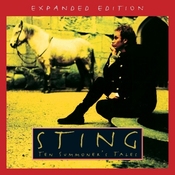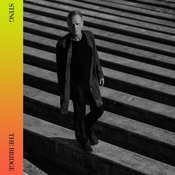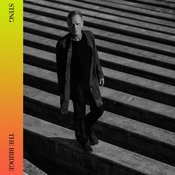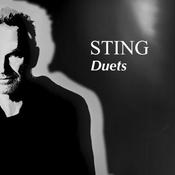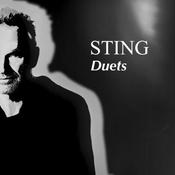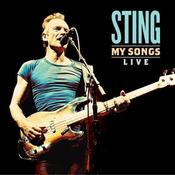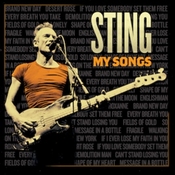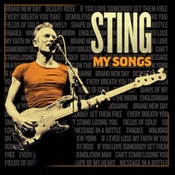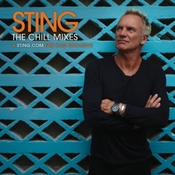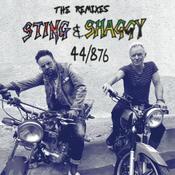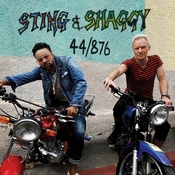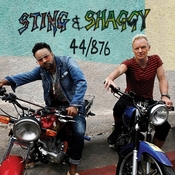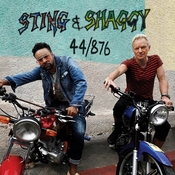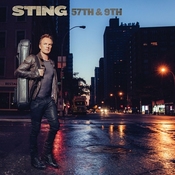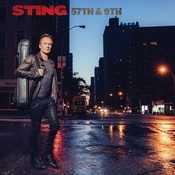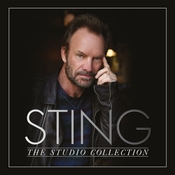Brand New Day

Soundbites
"I started last summer, but I pretended I wasn't working on a record. I pretended I was just gonna get some musicians together and have fun in the house and jam a little, and then pick the bones out of the jams in the mornings, and then adapt them a little bit. This was in Italy, in Tuscany. I converted a granaio, a big barn, into a playing space with a little desk in it. So I just jammed around for a month or two, and picked bits out and started to loosely structure songs without any lyrics. I finished and sequenced an hour of music without any idea of what it was about lyrically! This is not the normal way I work, which is to write lyrics first or second but always in the same period of time as the music. This was different. So I would take an hour of music away with me on my walks around the woods in Tuscany, and try and allow characters or stories to emerge, rather like the way I imagine sculptors work - they find a piece of rock and see a bit of a nose here, and a bit of an arm or leg there and end up with a body. Some days nothing would emerge out of the mist, and other days whole characters would emerge. So the music was telling me the stories. I had no plan that the songs would be connected in any way, because the music was quite disparate, but I ended up with 12 songs that were really love stories in the very traditional sense - but with "lover" always as a metaphor for something larger, some larger philosophical thought or religious view of the world. They're all connected in that sense, and I think it's quite a romantic record.
Sting, Billboard, 9/99
"I play all the bass on my Fender P-bass, and then I play a Roland guitar synthesiser, and a classical guitar. I typically play the simple guitar bits, the centre of the songs. Dominic Miller plays the colours, which he's really good at. I don't play any piano or keyboards on this record; I was in love with this guitar synth. It gave me so many opportunities to have fun. There's two drummers, Vinnie Colaiuta and Manu Katche. Three percussionists, Dominic, myself, three or four keyboard players, and an Orchestra. James Taylor sang on a song called 'Fill Her Up', Stevie Wonder played on 'Brand New Day', Branford Marsalis played saxophone on 'Tomorrow We'll See' - a song about transvestites - and Cheb Mami sang on 'Desert Rose'."
Sting, Bassist, 10/99
"I didn't even want to think that I was composing songs for an album, I just simply started to make them.In the past, the music and the lyrics came out almost simultaneously, but this time I just started with the music. For a year I have been doing sequencies and arrangements. I wanted to do an experiment and see if the lyrics would turn up as stories from the music. I used to walk every day through the forests round my house in Tuscany and many times I came back with no ideas at all. But slowly a face or a story appeared, and the songs began to take shape."
Sting, El Pais (Spain), 9/99
"I think there's an optimism in just about all the songs... That love actually transcends not only lifetimes, it also transcends break-ups. There is meaning in a relationship even if it doesn't last. It's been a profound and useful part of living. Even the song about the transexual. There's a pride in the way he/she sings about his/her life that I found very engaging. I like that it's a song about saying, 'don't judge me'."
Sting, World Café interview, 12/99
"I wrote most of 'Brand New Day' on a Roland VG-8 [guitar-synth system] with synthesizer sounds. That gave me a shot in the arm about being creative on guitar. I created most songs by jamming with a drum machine and getting riffs - that sound is all over the album. The theme from 'A Thousand Years', for instance, comes from the VG-8. I do sometimes write on the bass, though."
Sting, Revolver, 3/00
"I composed this music long before I ever had even a rhyming couplet or even an idea of what it would be about. I don't normally work that way. I normally write lyrics and music in the same period. This time, however, I'd written an hour of music, sequenced it, had it all in order, and then had to try and figure out what it was going to be about. I'd go for long walks with this music in my head and hope that characters, moods or stories would appear. It's a slower process. But they eventually did, and what I found was that virtually all the songs were love songs, which is not unusual. It's a variety of love songs, from sad to hopeful to optimistic - even some twisted, which shouldn't come as a surprise to anyone following my career."
Sting, Sky magazine, 12/99
"I feel the millennium is very much part of this record - and as my strategy in life is to be optimistic, in art I want to be the same. We need to look positively toward the future and not be sucked in by the lunacy that this is the end of the world, or that everything's going to fall apart - trouble, strife, plague, all that stuff. All that becomes self-fulfilling. So my strategy is to be optimistic, naïve maybe. But maybe that's my job."
Sting, 'Brand New Day' Official Press Release, 9/99
"I didn't set out to write lyrics just above love, yet almost all the songs have the theme of broken lives that can be mended by love. My challenge was to write a happy love song without being banal or smug. For example, 'Brand New Day', the last song, begins with a jaundiced view and then moves toward acceptance, to diving back into love. It's basically the thought that falling in love is an act of optimism - and I think if the album has that tone, for me... it's an optimistic one."
Sting, 'Brand New Day' Official Press Release, 9/99
"I composed, finessed and even sequenced the music before I'd even written a word. I had to trust that the music would tell me stories, begin to create characters. It's a much more mystical process. You have to be more patient. It's a little like sculpting a piece of wood - you begin to see faces in the wood."
Sting, 'Brand New Day' Official Press Release, 9/99
"Trying to write simple pop songs over compound time is my idea of a crossword puzzle - or three dimensional chess. That's my obsession, and I think people expect that of me - to throw a few loops here and there, and I think people would be disappointed if I didn't."
Sting, 'Brand New Day' Official Press Release, 9/99
"For this album, I wanted to pretend that I wasn't making a record, but merely to make music and have fun with various musicians, that was the idea. Just to spend some time and have some fun. Only at the last minute would I allow it be called a record, I wouldn't have anyone saying, 'This is the new record'. Instead we were just playing, experimenting, or just using time in a good way. I've spent since last June getting this far - longer than I've ever spent on an album. I usually make albums in a much quicker and more professional way. It was recorded piecemeal, a little here and there, in a casual and relaxed manner, basically in my home in Italy."
Sting, Bassist, 10/99
"The album was recorded in beautiful surroundings and I tried to kid myself that I wasn't making a record. I just phoned up my musicians saying, 'come over for a few weeks, the sun is shining, have some good wine,' and I didn't really look on it as doing a record until I started mixing the tracks. Otherwise I'd be thinking I have to put a record out to satisfy the record company and pay everybody's mortgage who works for me which would stifle the creativity. Really the album is window cleaning music... People will be polishing the windows, start humming a tune then suddenly go: 'Oh, it's a Sting album'."
Sting, Newcastle Journal, 9/99
"I never make a record unless I have something to say. I feel very confident about this record. It has an optimism which reflects my mood. I just hope people respond to it that way. It's always been my strategy to be optimistic, sometimes in the face of painful reality. If you are optimistic you tend to be rewarded in life. I will tend to take a risk, take a punt and see what happens. If I'm over-cautious, it doesn't really work for me. These are all love songs. I must have reached that romantic time in my life. I'm an incurable romantic and I'm very happy about that."
Sting, The Daily Record, 9/99
"My strategy always is to be optimistic - mainly because the alternative isn't very uplifting. And anyway, I'd rather be optimistic. That's always the way I've handled my life, and it's certainly done well for me up to this point, so I don't see why the millennium should change that now. Why be afraid of the future We have a lot of problems to sort out, but lets be optimistic that we can do it. Besides, the naysayers scare me. I don't uncertainty and just plain paranoia - which is why I try to avoid them."
Sting, Sky Magazine, 12/99
Backgrounder
Review from Billboard Magazine
Never one to rest on his considerable laurels, Sting rides a wave of cosmopolitan pop inspiration with this, his seventh solo album and most ambitious and affecting since 1991's 'The Soul Cages'. A song cycle on the sands of time and seeds of love, 'Brand New Day' brims with exoticisms from medieval chanson to Algerian rai to country, although the atmospheres are always at the service of a deeply communicative lyricism. The moody, moving 'A Thousand Years' takes the breath away immediately with its intimate grandeur, while 'Desert Rose' ups the ante like the royal flush it is. A boldly cinematic duet with French-Algerian vocal star Cheb Mami, 'Desert Rose' swirls and soars on a new-hued groove of electric arabesques. The arrangement's international vibe demonstrates Sting's ability to ever expand his vision, and the tune - every bit the equal of 'Every Breath You Take' or 'If Ever I Lose My Faith in You' - reinforces his stature as a matchless melodist. Hip, humane humor is also in evidence, as on 'Tomorrow We'll See' and 'Perfect Love...Gone Wrong' - the former blessed by cool-toned clarinet from Branford Marsalis, the latter a sexy French rap from Ste. Sting's compelling vocals and rock-steady bass drive the beguiling title track (and first single), as it seals the album with a kiss of adult pop. Far from going "Hollywood," Sting remains a voice of sanity and sophistication.
Review from Uncut Magazine by Nigel Williamson
Sting's seventh solo album has a millennial theme as he adopts an upbeat tone of new age optimism in defiance of the doomsayers. Musically it's an ambitious work, encompassing as many styles as there are songs. The hypnotic 'A Thousand Years' is based on a repetitive and simple Bach signature, 'Big Lie Small World' is an off-kilter bossa nova and 'Fill Her Up' is a slice of pure country swing.
Guests include James Taylor and Stevie Wonder and critics will no doubt dismiss it as on over-polished coffee-table album for talking over at Notting Hill dinner parties. The reaction is understandable for 'Brand New Day' is not really a rock record at all. But burrow under it's glossy sophistication and there is a deep and satisfying soulfulness to which you will want to return.
Review from The Times by David Sinclair
Why is it that no matter how passionate, heartfelt and meaningful Sting tries to be, he still ends up sounding like the soggy, liberal conscience of pop "I don't need forgiving/I'm just making a living/Don't judge me/You could be me in another life", he sings in 'Tomorrow We'll See', a song in which he imagines himself to be one of the transsexual prostitutes touting for business on the Bois de Boulogne. Almost as plausible is his attempt to play the role of a lovesick dog in 'Perfect Love Gone Wrong', an unbelievably cumbersome attempt at humour that rejoices in the line: "I howl all night and I sleep all day/It'll take more than a biscuit to chase these blues away".
Musically, 'Brand New Day' offers the usual humalong melodies stretched over excruciatingly complicated rhythmic structures smoothed out by musicianship of almost supernatural grace and coated in a sophisticated production gloss. Sting chases some exotic Middle Eastern harmonic intervals in 'Desert Rose', a duet with the Arab singer Cheb Mami, but for the most part he ends up sounding like the educated and regally detached observer he so obviously is.
Review from The Los Angeles Times by Robert Hilburn
The millennium is a perilous topic for songwriters, because it's so easy to embarrass yourself with grandiose or overly sentimental statements. So it's clear that Sting is in top form when he opens his latest album with a millennium-minded love song that doesn't come close to making you wince.
From its graceful melody to its delicate arrangement, the devotional 'A Thousand Years' recalls the intimacy and individuality of the veteran singer-songwriter's most winning works. And things get even better with 'Desert Rose', a tale of almost mystical longing filled with exotic images and highlighted by Sting's hookup with Algerian singer Cheb Mami.
Over the next eight numbers, Sting explores various facets of romance in a wide range of musical styles that move between bossa nova (Big Lie, Small World), down-home country ('Fill Her Up') and his trademark mix of jazz, pop-rock and world music.
'Brand New Day' doesn't have the captivating focus of his best album 'The Soul Cages', his 1991 reflection on the death of his father. The wry 'Fill Her Up' and the moody 'Tomorrow We'll See' (another story of a prostitute's plight) should work well in concert, but their overtly dramatic structures undermine the innocence and introspection of the album.
Mostly, however, 'Brand New Day', featuring such guest artists as Stevie Wonder and James Taylor, overflows with the imagination and ambition that have characterised Sting's solo career.
Review from The Orange County Register by Ben Vener
For all his rhythmic complexities and fluid skills at blending world musics and jazz into palatable pop, Sting is still at his best when he's at his simplest - just a great hook, a killer groove, maybe an anthemic chorus. It's a formula, sure, one he perfected by the time he left The Police, but it remains his forte.
Witness the strongest moments of his first four solo albums, all of which retain a winning sense of mainstream craft amid the smoky atmosphere and off-beat time signatures. Indeed, Sting has said his approach to songwriting is similar to an attack on a crossword puzzle; slowly but surely, the pieces fall into place until there's a completed form.
That doesn't happen on 'Brand New Day', perhaps because Sting is working with too many pieces. Convoluted, overwrought, at times even bombastic (something the artist has been on the verge of for some time), the album never coalesces with the same impact as, say, the noir sizzle of '...Nothing Like the Sun' (1987) or the intense intimacy of 'The Soul Cages' (1991).
It's almost all there, which makes it maddening. In nearly every song, it's as if one element too many pushes things too far - the herky-jerky French rap in 'Perfect Love...Gone Wrong', for instance, or the plodding, Yanni-esque string swirl that concludes 'Desert Rose' or the odd gospel-tinged world beat finish to the Nashville country of 'Fill Her Up'. Most irritating in those last two instances, the extra bits tend to overshadow fine contributions from outsiders, including Cheb Mami's lovely chanting on 'Rose' and James Taylor's faux-burliness on 'Up'.
In many ways, 'Brand New Day' feels like well-covered ground. Thematically, Sting tackles that trickiest topic, love, something he's already spoken eloquently of in both dark and light terms (compare 'Every Breath You Take' to 'Every Little Thing She Does Is Magic'). And much of the most personal moments here don't hold a candle to the primal hunger of the earlier I Burn for You.
Worse, when he sings in character say, the prostitute of 'Tomorrow We'll See' he's terribly pedantic. That doesn't mean, however, that the album is worthless. At his weakest, Sting is still capable of tunes and arrangements that are light-years ahead of anyone else working in a similar vein, and a few cuts here (the burbling bossa nova of 'Big Lie Small World', the Princely 'After the Rain Has Fallen' and the suitably ethereal 'Ghost Story') rank among his best. It's just not as smart overall as it should be.
Review from Best Magazine (France)
A particular fad has been going on for several years. Some adhere to it, but some are left perplexed. The happy owners of cars, often customized, stick obscure words on their rear windshield: "The GTI Touch", "The Touch", or better: "Touch The." It's all a campaign. After a while, these mysterious stickers have taken on a meaning synonymous of "loved car", polished, which despite not necessarily being fast, has the look and the flash. 'Brand New Day' confirms that we should stick such a sticker on the former leader of The Police's albums: "The Sting Touch." Meaning: quality album, worked, researched and always well polished.
If it's immediately recognizable and contains the usual elements of a Sting album, 'Brand New Day' is nonetheless different on many levels. Faithful to his intellectual-gentleman-open-to-the-world image, Sting continues to mature and question himself, accumulating multiple influences with wit and cunning: to have friends is very useful. Point taken when his new friend Cheb Mami lays down his soaring rai and his darboukas on 'Desert Rose'. The result is a marvel that should create a buzz. James Taylor brings a country touch, Stevie Wonder his inimitable harmonica, and French rapper Sté raps on an interesting, if not totally convincing duo. Another notable orientation: Sting has been leaning towards electronics. He incorporates it abundantly but tastefully to create elaborate and profound ambiences (the wonderful 'A Thousand Years'.) With good surprises, innovations, and classic compositions, 'Brand New Day' is sometimes uneven, but faithful to all that Sting produces: Touched by "class."
Review from Q Magazine by Phil Sutcliffe
Sting took his own advice when he wrote 'Fill Her Up'. It opens as a pedal steel Nashville pastiche, a yarn about a disgruntled country-road petrol pump attendant who runs off with the day's take and a plan to 'head west' with his girl. Until, that is, after six verses he runs into both a different, far moodier tune and the beauty of nature in the woods around the gas station. This activates his conscience and a Gospel choir who admonish: "You gonna 'Fill Her Up' with sadness / ...You gotta 'Fill Her Up' with love'. After this, nothing more is said, but a spacious jazz piano and double bass outro - the fifth melodic theme - somehow suggests a lesson taken to heart. If that's not enough, while tired souls bowl 'pretentious!', fans of painter Edward Hopper may enjoy comparing details with Gas, the 1940 canvas which clearly inspired the song.
Throughout, 'Brand New Day''s goodie bag of class-rock, breakbeats, bossa nova, rap, chanson and whatever next gives more the more It's played. Sting's preoccupation this year is romantic love.
His stories' large embrace includes Arabesque exotica (The 'Desert Rose'), Sinatra-in-Paris urban tragedy ('Tomorrow We'll See', doomed hero a drag queen prostitute) and cod-smoochy anthropomorphic farce ('Perfect Love Gone Wrong', doomed hero a jealous dog). But even when he risks generalisation, Sting can still pull it off: the candidly millennium-referencing A Thousand Years is a quiet, aeon-spanning romance (sung beautifully, which helps).
Prone, as ever, to the odd plunk down into mundanity when the wax wings of imagination melt - here, with one or two choruses de trop re the power of love - Sting can still rely on musical instinct for a little bit of what he fancies to do him good, be it Algerian Cheb Mami warbling on A 'Desert Rose', French rapper Ste upbraiding her pooch on 'Perfect Love Gone Wrong', or, marvellously, Stevie Wonder frolicking his harmonica - surely the sunniest sound of the century - through the title track.
It may be that nobody is going to like Sting who doesn't already, but 'Brand New Day' is full of vaulting ambition and cat-killing curiosity.
Review from USA Today by Edna Gundersen
Sting, the undisputed king bee of adult-contemporary pop, delivers more of his exoticism, sophistication and melodic brilliance on this seventh solo album, a vibrant work free of the fatigue or rote maneuvers you might expect at this stage in a long and lucrative career. In addition to refining his familiar funk 'n' jazz on such tunes as 'After the Rain Has Fallen', Sting flits across the globe, gliding from Paris (a sensuous French rap with Ste on 'Perfect Love Gone Wrong') to Nashville (wry country yarn 'Fill Her Up'). He embraces bossa nova on 'Big Lie Small World' and Algerian rai on 'Desert Rose', a sumptuous duet with African star Cheb Mami. Sting explores the healing powers of romance in warm, beautifully crafted music bolstered by impeccable musicianship, rich vocals and such impressive guests as James Taylor, Stevie Wonder and Branford Marsalis (playing an elegant clarinet on 'Tomorrow We'll See'). Like its standout track, the gorgeous and touching 'A Thousand Years', Sting's 'Brand New Day' has timelessness on its side.
Review from The New York Post
On his first disc in more than three years, Sting turns in a nine-song album that explores the secret language of love. The style-defying disc taps jazz, African pop, country and just about everything else that has tickled Sting's ear lately. Rather than sounding like a musical raider pillaging his way across any culture that gets within his grasp, here Sting respects the music and always give it enough room to develop. Although the theme is love, Sting avoids getting soft and mushy. Instead, he looks at love as if it were a mental disability, working his way through various stages, from head-over-heels to can't-live-with-'em-can't-kill-'em. The disc has no obvious radio single but peaks with the songs 'Perfect Love Gone Wrong' and 'Fill Her Up'. On Perfect, he pushes the dark jazz bop into hip-hop with a twist (the rap is delivered in French by international artist St. The piece eventually transforms into a gospel rave. 'Fill Her Up' also concludes in a praise Jesus gospel, but that tune emerges from a country cocoon wrapped in pedal steel guitar. And listen for guest spots, like the clarinet turn by long-time Sting pal Branford Marsalis, as well a distinctive harmonica blow by Stevie Wonder and James Taylor's mellow vocals.
Review from The Buffalo News by Anthony Violanti
The former Police man, as usual, is in elegant and cerebral form on his first release in three years. These nine songs are mainly pop, but Sting flashes influences of jazz, R&B and country. The subject matter is love, and Sting offers a touch of French rap on 'Perfect Love Gone Wrong'. Country takes center stage on a tune called 'Fill Her Up' that ends with a gospel sound. Sting offers some exotic emotion - the powerful 'A Thousand Years' - and 'Desert Rose' is a soulful duet with African singer Cheb Mami. Just when you think he has overdone it, he comes back to his old roots with a deep funk groove on 'Perfect Love Gone Wrong'. He remains among contemporary music's most ambitious and daring songwriters and performers. This album proves it once again.
Review from Mojo Magazine by Johnny Black
Buying every second Sting album has always been a fairly safe bet, and this is no exception. After the lacklustre (but still multi-platinum) 'Mercury Falling' in 1996, 'Brand New Day' feels like 10 more 'Summoner's Tales', employing a similar range of styles from bossa nova to country to gospel with multi-ethnic touches. If that makes it sound a tad contrived, well, it is, but so was Beethoven's Fifth, and the point is that Sting employs his eclectic shadings masterfully and always in the right places.
When Stevie Wonder's unmistakeably down home harmonica stabs into the dirty ambient opening of the title track, it's a perfect moment. Similarly, the luxurious North African ululations of Cheb Mami ideally counterpoint Sting's dusty vocal on the complex, soaring, 'Desert Rose', as does girly French rapper Stephanie Quinol, pepping up the ultra smooth witticisms of the shaggy dog tale, 'Perfect Love Gone Wrong'. 'Brand New Day' is big of tune and smart of lyric to the power of 10. Given time, it could be your favourite Sting album ever.
Review from The Pittsburgh Post-Gazette by Tracy Collins
Gordon Sumner has seen a lot of ups and downs in the 20 years since he debuted as the bass player for the Police. If there's any one trait that's been both his curse and his blessing, it's that Sting has never been satisfied with the trappings, or the methods, of his success. That has resulted in things as maddening as him quitting the Police at the height of its success 15 years ago, or as gratifying as yet another solid effort by one of his generation's most skilled songwriters. While not as moving as 'The Soul Cages' or as radio-friendly as 'Ten Summoners' Tales', 'Brand New Day' still ranks right up there with them as the best of his work.
On his seventh solo studio album, Sting takes you around the world, with Ste's Eastern vocals on 'Desert Rose' reminiscent of the late, great Nusrat Fateh Ali Khan, followed by a salsa beat on 'Big Lie Small World'. Several songs later, he punctuates a jazzy 'Perfect Love...Gone Wrong' with guest raps from Cheb Mami - in French. It's a sort of Boyz N the Berets, but what makes it so smooth is Sting's impeccable aplomb in blending it all seemlessly together. He also takes us to Nashville, complete with pedal steel and twang on 'Fill Her Up', getting vocal help from James Taylor, who adds a little more authenticity to the song than the well-heeled Brit lead singer.
Sting also takes on a number of personas to deliver some spiritual messages, from a prostitute who provides a street sermon on judging others, to a gas station robber who has a religious experience that sets him straight. There isn't a misstep among the 10 songs. Sting likes to say his strict lifestyle keeps him feeling eternally young. But it's his ability to turn out work like this that keeps his music feeling eternally fresh.
Review from The LA Daily News
New album, same sonic stew of love songs with quirky time signatures. And that's not a bad thing. Because while you can always count on Sting to hopscotch between styles (bossa nova, country, world beat, jazz and gospel all receive workouts here), you never know what approach he's going to take. Here, on his seventh solo album, he has jettisoned longtime collaborator Hugh Padgham in favor of producer/programmer Kipper, aiming for a sonic-collage feel on several songs. But boomers take comfort: James Taylor and Stevie Wonder are on hand, too, as well as trumpeter Chris Botti, who brings noirish Miles Davis shadings to a couple of tracks. While this may not be a completely brand-new day, it is another engaging step in the evolution of one of pop's most compelling personalities.
Review from The Las Vegas City Life by Mike Prevatt
Sting started out the '90s quite depressed - evidenced in his beautiful, grief-stricken 'Soul Cages' album. He ends the decade with a polychromatic, keenly optimistic 'Brand New Day' - a record that explores not only a huge variety of worldly influences, but also the various stages of his pop evolution. 'Brand New Day' hardly uses its instrumentation to reminisce about the old days, but it's gratifying to witness how true the man formerly known as Gordon Sumner has kept bits of the past in his unstylish, melodic vision of the future. With only nine full-length compositions, you wonder if Sting is getting lazy; on the contrary, these mini-epics point to his most ambitious stage yet. Songs like 'Big Lie Small World' hint at jazz, world and Latin music all in one sensual rhythm, without allowing the multitude of colorful elements to clash. And while each genre-synthesizing work evokes a story outside of Sting's poeticism, 'Brand New Day' also marks the artist at his narrative, romantic best (see the wonderfully, country-jangly 'Fill Her Up' and the Dave Matthews-meets-Peter Gabriel title track). Highlighting it all, though, is 'Desert Rose', a glowing, grand pop song - complete with Arabic chanting. A statement of hope and reflection, 'Brand New Day' is a fresh start that doesn't forget its past.
Review from The Virginian Pilot by Mike Zacher
Veteran musician Sting will undoubtedly win back fans on his engaging new CD 'Brand New Day': The title of Sting's latest album may be a metaphor for the outlook he has on his career. After the commercial disappointment of 1996's 'Mercury Falling' the artist may be working on winning back his fan base. With a new collection of top-notch songs, he's liable to do just that.
Sting has always had great variety among his songs, and his ability to translate musical influences into his own unique songs shines on this new album. The opening track, 'A Thousand Years', has a Middle Eastern vibe, as does 'Desert Rose', with its Arabic-sounding background vocals.
The singer claims that writing is hardest for him, but the lyrics are rich with different characters and themes. Whether it's the regret in the comical 'Big Lie Small World' or the lovelorn woman in 'After the Rain Has Fallen', each song has something that engages you.
One of the best tracks is 'Tomorrow We'll See' with its smooth strings and European feel. The thinly disguised theme and Branford Marsalis' clarinet add a good dose of sensuality to the song.
Sting has written a few country-tinged songs in recent years, and 'Fill Her Up' is an amazing example of his musical range. The song starts off as country with James Taylor sharing vocals. It then turns into a gospel song and ends with a touch of jazz. The next track, the soothing 'Ghost Story', perfectly complements its predecessor.
The title track completes the album and turns out to be the catchiest song of the bunch. Sting recruits Stevie Wonder to play harmonica and he plays it in his trademark, early-'70s style. The song will be in your head for hours because of Sting's hopeful lyrics on love and Wonder's harmonica evoking not just excellence, but nostalgia.
With various musical styles and great lyrics, not to mention a few classy guests, Sting has made an album that gets better every time you listen to it.
Review from The Saskatoon Star-Phoenix by Dan Zakreski
Any doubts about Sting's ability to swing effortlessly between musical genres are gracefully dispelled by the ten songs on 'Brand New Day'. Sting covers the waterfront on this disc, from jazz to soul to pop to country. Yep, country. Song eight, 'Fill Her Up', churns along with pedal steel guitar and fiddle, you've got to hear it to believe it. What makes this such a compelling disc, however, is not the musical diversity. It's not his unerring ear for sweet melodies, it's not his instantly recognizable voice. No, the beauty is how Sting uses the lyrics to give the album its cohesion. Only after listening to the entire disc is it clear that the variety of musical styles are used as different voices to frame the same story. A love story, of course. Good love, bad love and love in vain. A story told with wit and elegance and economy. "It could happen to you / Just like it happened to me / There is simply no immunity / There's no guarantee." That's from the soaring 'Brand New Day', the closest he comes to conventional pop on the disc, with Stevie Wonder on harmonica and Branford Marsalis on clarinet. It just doesn't get any better.
Review from The Indian Times by Tarun Khanna
Sting's latest and, to a large part, most original album should manage to surprise most, including his die hard fans like me who have gotten used to a new sound with every alternate venture of his. 'Brand New Day' is an album which alternates between taking you back in time and presenting a whole new sound. You are taken from the heights of sheer brilliance to the plains of the usual all at one go, the album oscillates so. It kicks of with 'A Thousand Years' which is a beautifully written love song and goes on to 'Desert Rose', a track where English lyrics are fused with Arabic, and the Algerian rai style of singing with pop, brilliantly. 'Big Lie Small World' is pretty regular and disappoints. After this comes along 'After The Rain Has Fallen' which is a pretty good track with a great beat and reminds you of the Sting of 'Soul Cages' & 'If I Ever Lose My Faith In You'. It is followed by the Anglo-French 'Perfect Love...Gone Wrong', another relatively ordinary offering.
Side two starts with 'Tomorrow We'll See', a prostitute's tale of acceptance of her circumstances. The song is well written and performed with elan but lacks the punch of a classic written at the beginning of his career called 'Roxanne'. 'Fill Her Up' is a fabulous song that begins in country style and closes with a gospel touch, complete with choir and all. This is one of the best tracks on the album both in terms of lyrics & rhythm and sets the ball rolling for a grand finale. 'Ghost Story' starts slowly but picks up in tempo and the lyrics that make it up are sheer poetry. Save the best for last seems to have been his credo for the title track is placed at the very end of this vastly unique experience. 'Brand New Day' is one of the best tracks that have been graced the airwaves in a long time. It is Sting at his very best and for his millions of fans around the globe, this is a treat. The lyrics convey clearly what he is trying to say to everybody and the music merges like magic. If this is anything to go by, then expect the totally unexpected from him in his next album is my advice to lovers of his music. Don't wait for anything - buy this album.










